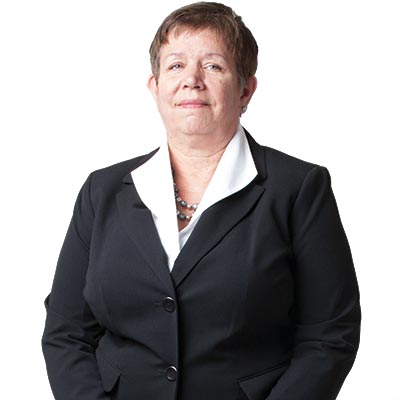We Want Answers: New SRC Chair Marjorie Neff

Photograph by Claudia Gavin
The School District of Philadelphia has been beset in recent years by both financial and academic challenges. It seems to me you have the most difficult job in town.
Definitely the most difficult volunteer position in town.
Why did you volunteer?
You know, there are times when I ask myself, “Why am I doing this?” But I also believe that just because something’s hard doesn’t mean you shouldn’t do it, if you think it’s right.
The perception is that you ascended to the SRC chair in part because you voted against the charter expansion.
That might’ve been the perception, but that was not the reality. The Governor asked me to do this. We didn’t talk about charter schools before or after as part of his decision-making process.
What is the role of charter schools in the district, then?
There are two conditions under which I think we would be better able to work together. One is when the state does not disadvantage the regular public schools in its funding of charter schools. The other thing is, we have to be able to hold charter schools to the same standards that we’re holding district schools to in terms of student outcomes.
It’s easy to get the impression from public-school activists that there’s a shadowy cabal trying to destroy public schools for the benefit of private interests.
I don’t know how to answer that. Is there a larger, national movement to do that? That’s possible. I think that sometimes those discussions distract us from focusing on our local situation and what’s in the best interest of kids, because we’re talking in a larger, ideological realm.
You came up as an educator — you were principal at Masterman, one of the city’s crown jewels. Is it tough for you personally to have to be on the other side of that?
Yes and no. I think what I bring to the table in every discussion is a real understanding of what it looks like in the field, and I value that. To me, the resources are the biggest thing we have to worry about right now — giving people the tools they need to do the best that they can for children. Frankly, I have a son and a soon-to-be daughter-in-law who are teachers, so this is an important thing to me, to make sure our kids have what they need.
Do they teach in Philadelphia public schools?
They do.
Wow. Sounds like you passed on the gene pretty well, then.
[laughs]
There’s a sense that maybe the city’s continued success depends on the district getting its act together.
Well, I would change that. It’s not about the school district getting its act together. I think it’s about our funding sources getting their act together to allow us to do the work we know we can do.
I’m the father of a boy who’s going to be in second grade next year. Should we keep giving the public schools a chance?
I’m the proud parent of two public-school graduates. My kids went to their neighborhood public school, and it wasn’t as pretty as the private schools we looked at. It didn’t have many resources. They got a great education; they’re both productive adults. So I say if you love living in the city, you need to think about making that investment in your neighborhood school.
There’s a movement to put the SRC out of business. Agree?
My sense is that the SRC will happily vote itself out of existence when the school district continues on a positive academic trajectory and the financial situation is completely stabilized. That’s where I am on it, and I think my fellow commissioners would likely agree with that.
Originally published as “We Want Answers: Marjorie Neff” in the June 2015 issue of Philadelphia magazine.


